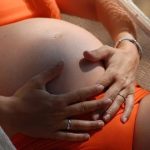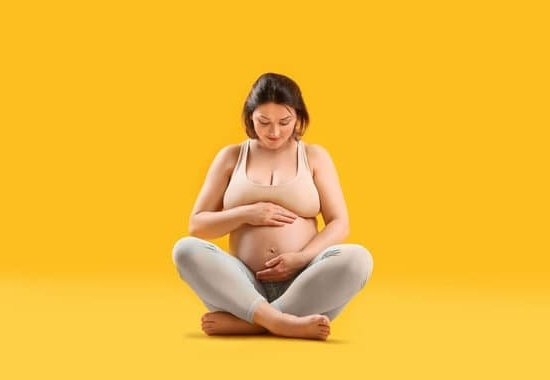Are you considering pregnancy over the age of 35? It’s important to understand the risks and challenges associated with geriatric pregnancy. As women delay childbirth for various reasons, the concept of geriatric pregnancy has become increasingly relevant. This article will explore the definition of geriatric pregnancy and the associated risks that older expectant mothers may face.
Geriatric pregnancy, also known as advanced maternal age pregnancy, refers to pregnancies in women over the age of 35. While many women today are opting to have children later in life, it’s crucial to understand the potential complications and health risks that come with advancing maternal age. This article aims to provide a comprehensive overview of these risks and offer insights into how women can navigate through a geriatric pregnancy while prioritizing their health and well-being.
By delving into the various aspects of geriatric pregnancy, including fertility challenges, prenatal care, common health issues, psychological concerns, birth considerations, and postpartum recovery, this article aims to empower older expectant mothers by providing them with valuable information to make informed decisions about their journey through geriatric pregnancy. Let’s explore the unique aspects of geriatric pregnancy and provide support for women navigating this stage in their lives.
Understanding the Age Factor
As women age, their fertility declines and the risks associated with pregnancy increase. This is particularly true for women over the age of 35, who are considered to be of advanced maternal age. Advanced maternal age, commonly associated with geriatric pregnancy, is linked to various risks and complications that can impact both the mother and the baby.
The Risks for Older Mothers
Women over the age of 35 are at a higher risk of experiencing complications during pregnancy such as preterm birth, low birth weight, and stillbirth. Additionally, these older mothers may also be at an increased risk for developing gestational diabetes, hypertension, and pre-eclampsia. The chances of multiple births also increase with age due to the higher likelihood of needing fertility treatments.
Risks for the Baby
Babies born to older mothers may face increased risks as well. These include genetic disorders such as Down syndrome and other chromosomal abnormalities. There is also a heightened risk of certain birth defects in babies born to women over 35.
Complications During Labor and Delivery
Older mothers may also experience more complications during labor and delivery, potentially leading to higher rates of cesarean deliveries. The recovery process from childbirth may also be more challenging for older mothers due to decreased physical resilience.
Despite these risks and complications associated with geriatric pregnancy, it’s important to note that many women over 35 have healthy pregnancies and deliver healthy babies. With close monitoring by healthcare professionals and appropriate prenatal care, many older mothers can navigate their pregnancies successfully while minimizing potential risks.
Fertility and Conception
Challenges of Conceiving at an Advanced Age
One of the primary challenges faced by women experiencing geriatric pregnancy is reduced fertility. As women age, the quantity and quality of their eggs decline, making it more difficult to conceive. Additionally, there is an increased risk of chromosomal abnormalities in embryos, leading to a higher rate of miscarriage among older women. These biological factors can create significant emotional stress for women hoping to become pregnant later in life.
Options for Assisted Reproduction
For women facing difficulty conceiving due to age-related factors, there are various assisted reproductive technologies available. In vitro fertilization (IVF) and egg donation are common options for women over 35 who are struggling with infertility. IVF involves harvesting eggs from the woman’s ovaries, fertilizing them with sperm in a laboratory setting, and then transferring the resulting embryos into the woman’s uterus.
Egg donation, on the other hand, allows older women to receive healthy donor eggs for fertilization. These options provide hope for women seeking to achieve pregnancy despite the challenges associated with geriatric pregnancy.
The Importance of Early Planning
Given the potential difficulties in conceiving at an advanced age, it is essential for women considering geriatric pregnancy to seek fertility counseling and begin planning as early as possible. By understanding the options available and addressing potential fertility issues proactively, older women can increase their chances of successful conception and have a greater sense of control over their reproductive journey.
It is important for healthcare providers to offer support and guidance to these women as they navigate the complexities of fertility and conception in later stages of life.
Prenatal Care and Monitoring
Pregnancy at an advanced maternal age, commonly referred to as geriatric pregnancy, is becoming increasingly common in today’s society. This term is used to describe pregnancies that occur in women over the age of 35. While many women in this age group have successful and healthy pregnancies, there are certain risks and complications that are associated with geriatric pregnancy.
One of the key factors in ensuring a safe and healthy geriatric pregnancy is specialized prenatal care and monitoring. Older expectant mothers are at a higher risk for conditions such as gestational diabetes, high blood pressure, and pre-eclampsia. Therefore, it is crucial for these women to receive regular prenatal check-ups and screenings to monitor their health and the development of their baby.
Specialized care for older expectant mothers also entails more frequent testing and monitoring during the pregnancy. This may include more regular ultrasound scans to assess fetal growth and wellbeing, as well as additional blood tests to monitor for any potential complications. The goal of this specialized care is to identify and address any issues as early as possible to ensure the best possible outcome for both the mother and the baby.
Overall, while geriatric pregnancy does come with its own set of risks and challenges, with proper prenatal care and monitoring, older expectant mothers can still have a positive and healthy pregnancy experience.
| Aspect | Data |
|---|---|
| Conditions | Gestational diabetes, high blood pressure, pre-eclampsia |
| Tests | More frequent ultrasound scans, additional blood tests |
Common Health Issues
As women age, the risk of developing health issues during pregnancy increases. This is particularly true for women experiencing a geriatric pregnancy, which is defined as a pregnancy in women over the age of 35. The risks of gestational diabetes, hypertension, and pre-eclampsia are especially prevalent in older expectant mothers. It is important for women and their healthcare providers to be aware of these potential health issues and take necessary precautions to ensure a safe and healthy pregnancy.
Gestational diabetes is a type of diabetes that develops during pregnancy and can lead to complications for both the mother and the baby. Women with geriatric pregnancies are at an increased risk of developing gestational diabetes due to age-related changes in insulin resistance. Proper monitoring of blood sugar levels and dietary adjustments are crucial in managing gestational diabetes during a geriatric pregnancy.
Hypertension, or high blood pressure, is another common health issue that older expectant mothers may face. The risk of developing hypertension during pregnancy increases with age, and if left unmanaged, it can lead to serious complications such as preterm birth, low birth weight, and preeclampsia. Regular blood pressure monitoring and working closely with healthcare providers are essential in managing hypertension during geriatric pregnancies.
Pre-eclampsia is a condition characterized by high blood pressure and signs of damage to other organ systems, most commonly the liver and kidneys. Women with geriatric pregnancies have an increased risk of developing pre-eclampsia compared to younger expectant mothers.
The condition can be life-threatening if not properly managed, making prenatal care and monitoring vital for early detection and intervention. Close collaboration between expecting mothers and their healthcare providers is crucial in addressing the risks of gestational diabetes, hypertension, and pre-eclampsia in geriatric pregnancies.
Psychological and Emotional Aspects
As women age, the decision to have children becomes more complex, especially considering the risks associated with geriatric pregnancy. The psychological and emotional aspects of becoming an older mother can be challenging and may contribute to increased stress and anxiety during pregnancy. Older mothers-to-be often face concerns about their health, the health of their baby, and the impact of age on their ability to parent effectively.
One common concern for older mothers-to-be is the fear of potential complications during pregnancy and birth. Research has shown that women over 35 are at a higher risk for gestational diabetes, hypertension, and pre-eclampsia, which can lead to significant stress and worry. Additionally, the fear of not being able to keep up with the physical demands of parenting as an older mother can also cause emotional distress.
The societal stigma surrounding geriatric pregnancy can also take a toll on the mental well-being of older mothers-to-be. Despite advancements in reproductive technology and a growing number of women choosing to have children later in life, societal norms and expectations may still contribute to feelings of insecurity or inadequacy. It is important for healthcare providers and support systems to address these concerns and provide empathy, understanding, and resources for older mothers-to-be.
| Psychological Concerns | Emotional Challenges |
|---|---|
| Fear of complications during pregnancy | Worry about not being able to keep up physically as an older mother |
| Societal stigma & expectations | Insecurity & feelings of inadequacy |
Birth and Postpartum
Giving birth and the postpartum period can present additional challenges for women experiencing a geriatric pregnancy. It is important for older expectant mothers to be well-informed about the potential risks and considerations associated with labor, delivery, and recovery. Here are some key points to consider during this stage of geriatric pregnancy:
- Increased risk of cesarean section: Women over the age of 35 are more likely to undergo a cesarean section due to factors such as prolonged labor, fetal distress, or other complications. It is important for older expectant mothers to discuss their preferences and concerns with their healthcare provider to ensure their birth plan aligns with their needs.
- Long-term recovery: Recovery after childbirth can be more challenging for older mothers as they may take longer to heal physically. It is essential for women experiencing a geriatric pregnancy to prioritize self-care and seek support from healthcare professionals, family members, and friends during the postpartum period.
- Potential health complications for both mother and baby: Older expectant mothers are at a higher risk of developing gestational diabetes, hypertension, or pre-eclampsia during pregnancy, which can impact the birthing process and postpartum recovery. Additionally, babies born to older mothers may have an increased likelihood of being premature or having low birth weight. This emphasizes the importance of close monitoring by healthcare providers throughout the labor, delivery, and postpartum stages.
Overall, it is crucial for women experiencing a geriatric pregnancy to work closely with their healthcare team to create a personalized birth plan that prioritizes safety and wellbeing for both mother and baby. Open communication and education about potential risks and considerations can help empower older expectant mothers as they navigate through labor, delivery, and recovery.
Conclusion
In conclusion, geriatric pregnancy presents unique challenges and risks for women over the age of 35. It is important for older expectant mothers to be aware of the potential complications and to seek specialized prenatal care in order to ensure a healthy pregnancy and delivery. While there are increased risks of gestational diabetes, hypertension, and pre-eclampsia in geriatric pregnancy, with proper monitoring and management, these risks can be minimized.
It is crucial to empower and support women in their journey through geriatric pregnancy by providing them with the knowledge and resources they need to make informed decisions about their prenatal care and birthing options. Additionally, addressing the psychological and emotional aspects of becoming an older mother-to-be is essential in ensuring the overall well-being of these women.
Ultimately, with proper medical guidance, emotional support, and access to relevant information, older expectant mothers can navigate through their geriatric pregnancies with confidence. By acknowledging the unique challenges they may face and providing them with the necessary tools for a healthy pregnancy and delivery, we can empower women to embrace motherhood at any age.

Welcome to my fertility blog. This is a space where I will be sharing my experiences as I navigate through the world of fertility treatments, as well as provide information and resources about fertility and pregnancy.





